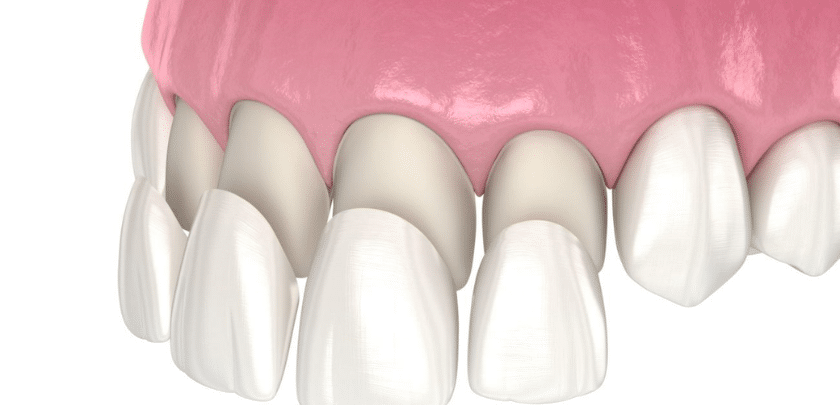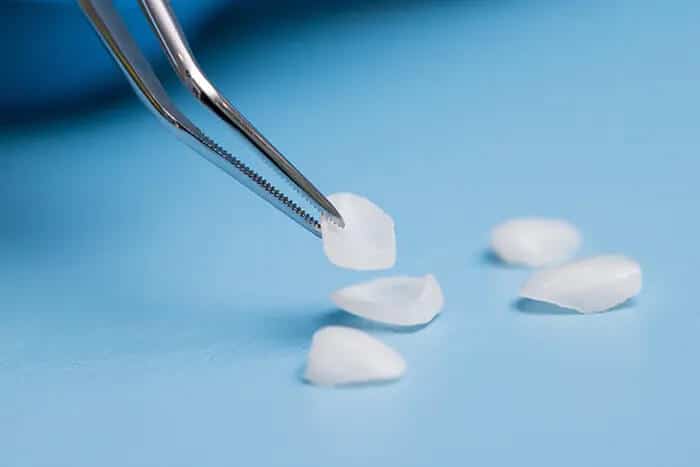
Dental veneers are a popular cosmetic dental treatment used to improve the appearance of teeth by covering imperfections such as discoloration, chips, or gaps. While veneers are generally well-tolerated by most patients, some individuals may experience discomfort or pain after the procedure. Understanding the causes of dental veneer pain is essential for both patients and dental professionals to ensure optimal outcomes and patient satisfaction. In this comprehensive guide, we will explore the various factors that can contribute to dental veneer pain and discuss strategies for managing and preventing it.
- Initial Sensitivity: It is not uncommon for patients to experience some degree of sensitivity or discomfort immediately following the placement of dental veneers. This is often due to the removal of a small amount of enamel from the teeth to accommodate the veneers, as well as the bonding process used to attach them. The sensitivity typically subsides within a few days as the teeth adjust to the veneers.
- Improper Fit: Dental veneers should be custom-made to fit each patient’s teeth precisely. If a veneer is too large, too small, or improperly shaped, it can cause irritation or pain in the surrounding gum tissue. Additionally, if the veneer is not bonded correctly to the tooth surface, it may create pressure points that lead to discomfort.
- High Bite Pressure: Excessive bite pressure can put a strain on the teeth and veneers, leading to pain or discomfort. Patients who habitually grind or clench their teeth (bruxism) are at a higher risk of experiencing this type of pain. In such cases, a custom-fitted night guard may be recommended to protect the veneers and alleviate symptoms.
- Allergic Reactions: While rare, some individuals may have allergic reactions to the materials used in dental veneers, such as composite resin or porcelain. Symptoms of an allergic reaction may include swelling, redness, or itching around the gum line. If an allergy is suspected, the veneers may need to be removed, and alternative materials explored.
- Dental Decay or Infection: If dental decay or infection develops beneath a veneer, it can cause pain or sensitivity in the affected tooth. This can occur if the tooth was not properly cleaned and prepared before the veneer was placed, allowing bacteria to thrive. Regular dental check-ups and proper oral hygiene are essential for preventing decay and infection.
- Gum Recession: Gum recession occurs when the gum tissue pulls away from the tooth, exposing the sensitive root surface. In some cases, dental veneers may exacerbate gum recession, leading to increased sensitivity or discomfort. Proper oral hygiene practices and gum tissue management can help prevent or minimize gum recession.
- Trauma or Injury: Accidental trauma or injury to the mouth can damage dental veneers and cause pain or discomfort. Activities such as biting down on hard objects, sports-related injuries, or falls can all contribute to veneer damage. Patients should exercise caution and wear protective mouthguards when engaging in activities that pose a risk of dental injury.
- Temperature Sensitivity: Some patients may experience increased sensitivity to hot or cold temperatures after receiving dental veneers. This sensitivity is often temporary and should resolve within a few weeks as the teeth adapt to the new restorations. In the meantime, avoiding extremely hot or cold foods and beverages can help alleviate discomfort.
- Inadequate Oral Hygiene: Poor oral hygiene practices can lead to plaque and tartar buildup around the margins of dental veneers, increasing the risk of gum disease and decay. This can cause inflammation, pain, and even the loss of the veneers over time. Patients should brush and floss regularly and visit their dentist for professional cleanings to maintain optimal oral health.
- Stress or Anxiety: Psychological factors such as stress or anxiety can exacerbate dental pain and discomfort. Patients who are anxious about dental procedures may experience heightened sensitivity or perceived pain. Dental professionals should strive to create a comfortable and reassuring environment for anxious patients and may recommend relaxation techniques or sedation dentistry options.
Managing Dental Veneer Pain:
- Follow-Up Appointments: Patients should attend all scheduled follow-up appointments with their dentist to ensure that the veneers are properly adjusted and any issues are addressed promptly.
- Over-the-counter Pain Relief: Over-the-counter pain medications such as ibuprofen or acetaminophen can help alleviate mild to moderate dental veneer pain. Patients should follow the recommended dosage instructions and consult with their dentist if pain persists.
- Avoid Hard or Sticky Foods: Patients should avoid chewing on hard or sticky foods that can put excessive pressure on the veneers and increase the risk of damage or discomfort.
- Practice Good Oral Hygiene: Maintaining good oral hygiene habits, including brushing twice daily, flossing regularly, and using an antiseptic mouthwash, can help prevent complications such as decay or gum disease that may contribute to dental veneer pain.
- Use a Soft Toothbrush: Patients should use a soft-bristled toothbrush and gentle brushing technique to clean around the veneers and minimize irritation to the gum tissue.
- Custom Mouthguards: Patients who grind or clench their teeth may benefit from wearing a custom-fitted mouthguard, especially at night, to protect the veneers and reduce bite pressure.
- Address Underlying Issues: If dental decay, infection, or gum disease is contributing to dental veneer pain, prompt treatment is essential to resolve the underlying issues and alleviate symptoms.
- Communication with Dentist: Patients should feel comfortable discussing any concerns or discomfort with their dentist. Open communication allows the dentist to address issues promptly and adjust the treatment plan as needed.
In conclusion, understanding the causes of dental veneer pain is crucial for both patients and dental professionals to ensure successful outcomes and patient satisfaction. By identifying potential contributing factors and implementing appropriate management strategies, dental veneer pain can be minimized or prevented, allowing patients to enjoy the benefits of their enhanced smiles with minimal discomfort. Regular dental check-ups and proper oral hygiene practices are essential for maintaining the health and longevity of dental veneers.
